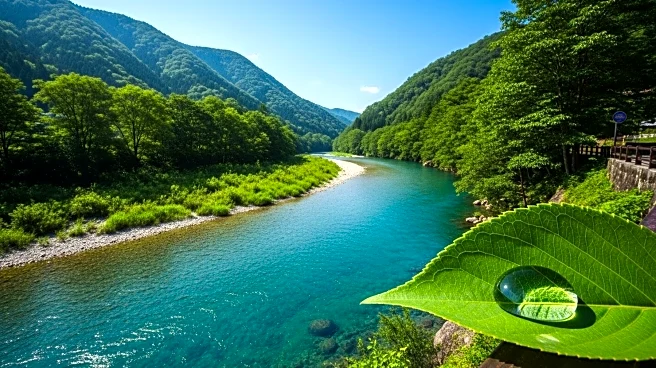What's Happening?
The White House has withdrawn the nomination of Ted Cooke, a veteran water expert from Arizona, to lead the Bureau of Reclamation, which oversees water management in the western United States. Cooke was preparing for a Senate confirmation hearing when he was informed that his nomination was pulled due to unspecified issues with his background check. The decision comes at a critical time as the Bureau and seven states are negotiating how to share the Colorado River amid ongoing drought conditions. Cooke expressed disappointment, suggesting that political expediency and Colorado River basin intrigues may have influenced the decision. His nomination had been praised for his experience in managing Arizona's water resources, but concerns were raised by officials in other Western states about potential bias towards Arizona.
Why It's Important?
The withdrawal of Cooke's nomination is significant as it leaves the Bureau of Reclamation without permanent leadership during crucial negotiations over the Colorado River, a vital resource for seven U.S. states, Native American tribes, and parts of Mexico. The river provides water and electricity to millions and supports agriculture in the region. The absence of a confirmed leader could impact the ability to reach agreements on water allocations, which are essential to address the challenges posed by shrinking water supplies. The decision also highlights the political complexities involved in managing shared water resources, where state interests and federal oversight must be balanced.
What's Next?
The Trump administration has not announced a new candidate for the Bureau's leadership, leaving uncertainty about future negotiations. The acting leadership of the Bureau is expected to continue working on solutions for river management. Stakeholders, including state officials and water managers, will likely push for a resolution to ensure reliable water supplies. The situation underscores the need for effective leadership to navigate the complex political and environmental issues surrounding the Colorado River.









